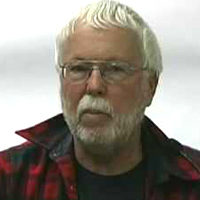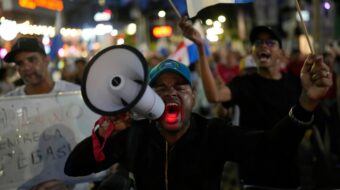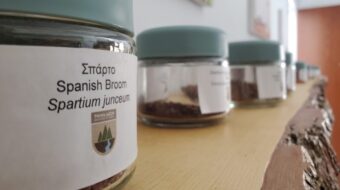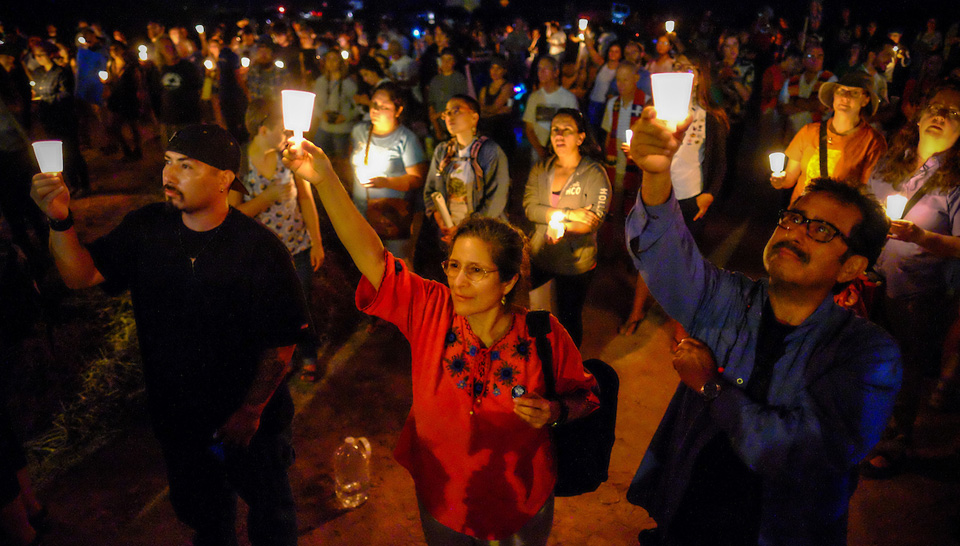
NOGALES, Ariz. – Separated by an international border, the usually sleepy towns of Nogales, Arizona and Mexico’s Nogales, Sonora, were stirring with activity last weekend when immigrant rights and labor activists from all over the U.S., Mexico and several other countries converged on the border.
Carlota Wrey, a founding member of People Helping People, an organization in Arizona that provides aid to those crossing the desert and dealing with Border Patrol said of the purpose of the “border convergence” that, “We believe that the freedom of movement is a human right. Our communities must unite and lift up our voices to demand [the] halt of human rights abuse against immigrants and people of color, and an end to the militarization of the borders.”
School of the Americas Watch (SOAW) coordinated the gathering together with more than 400 social justice organizations. For over 20 years SOAW had held large gatherings at Ft. Benning in Columbus, Georgia to protest the U.S. military’s “School of the Americas,” at which some of Latin America’s most notorious torturers and killers were trained to serve the interests of U.S. imperialism in the hemisphere.
The U.S. – Mexico border was chosen for 2016 in order to dramatize that the same denial of human rights and militarization that the military encourages in other countries is also taking place in our country in places like Nogales. The date was moved up from the traditional late November to early October in order to allow the issues discussed to impact the upcoming U.S. general elections.
Furthermore, the first Border Patrol agent to go through the School of the Americas deadly curriculum graduated in March of last year, lending new urgency to SOAW’s fight.
Events commenced on Oct. 7 when a crowd of 500 gathered outside the Immigrant Detention Center in Eloy, Arizona, 50 miles north of Tucson. Protesters listened to music and speakers demanding that detention centers like Eloys be closed and that an end be put to profiteering by private prison corporations from human suffering.
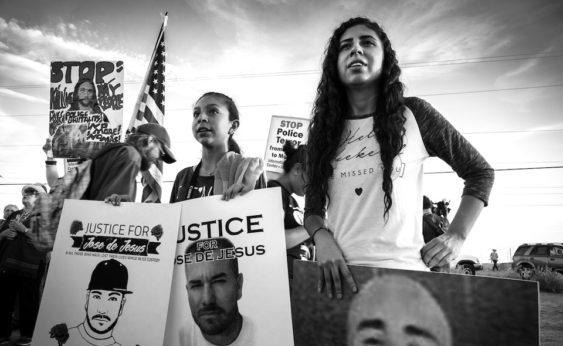
Speakers detailed the inhuman conditions, loss of life, and cruelty to children that are part of that process. At sundown we could see the flickering of lights and waving of cloth by inmates who had organized on the inside of the prison. How uplifting to know that the prisoners knew and appreciated our solidarity even if it was largely ignored by corporate media.
Saturday, we were back in Nogales. The day started with a veteran-led march from the Hotel Americana on the U.S. side, down to the border where it split into two streams, one staying in the U.S. and the other entering Mexico. The two streams then met on opposite sides of the border fence, west of the border crossing and near the spot where Jose Elena Rodriguez had been shot and killed by a Border Patrol agent. A large rally ensued where nearly 800 marchers were joined by hundreds more, including many on the Mexican side who could not cross into the U.S.
Saturday afternoon saw crowded workshops on either side of the border where people learned about and strategized on immigration issues, border militarization, Indigenous rights, and solidarity with Latin American anti-imperialist struggles.
On Sunday, we participated in a traditional SOAW commemoration where names of victims were read and where there were speakers and musical performances. Afterwards, about 200 activists led by SOAW founder, the Rev. Roy Bourgeois, arrived at the interior checkpoint 20 miles north of Nogales on the road to Tucson. Some 20 protesters linked arms, held a vigil, and refused to leave the checkpoint for over five hours despite the threat of tear gas and arrests. They demanded that checkpoints like this, despised by many local residents, be closed.
Throughout the weekend events also took place in Tucson, 60 miles away, for participants who were not able to venture to the border because of that checkpoint.
For more information go to www.SOAW.org/border.
Patrick J. Foote contributed to this article


